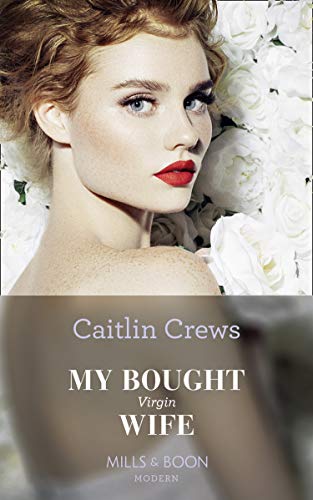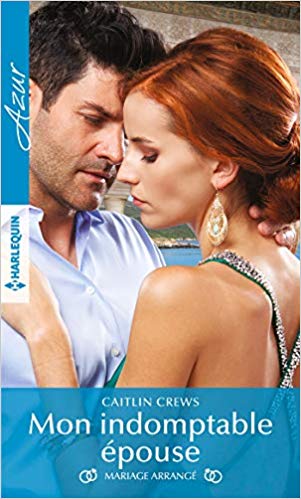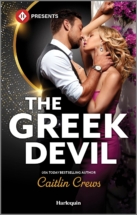My Bought Virgin Wife
HEAT
LEVEL:
Satisfyingly Spicy
She’s mine…
But will her innocence break all my rules?
I’ve never wanted anything like I want aristocratic heiress Imogen Fitzalan. I married her to secure my empire— but my obediently untouched wife has ignited an undeniable hunger in me. Desire beyond reason wasn’t my plan, yet now I have a new aim: to strip away her dutiful resignation, and replace it with a ferocious passion to match my own…
Start reading
My Bought Virgin Wife
Jump to Buy Links →
Imogen
IN THE MORNING I was to marry a monster.
It did not matter what I wanted. It certainly did not matter what I felt. I was the youngest daughter of Dermot Fitzalan, bound in duty to my father’s wishes as women in my family had been forever.
I had always known my fate.
But it turned out I was less resigned to it than I’d anticipated when I was younger and far more silly. And when my wedding had not loomed before me, beckoning like some kind of inevitable virus that nothing could keep at bay.
There were no home remedies for my father’s wishes.
“You cannot let Father see you in this state, Imogen,” my half sister, Celeste, told me briskly as she swept in. “It will only make things worse for you.”
I knew she was right. The unfortunate truth was that Celeste was usually right about everything. Elegant, graceful Celeste, who had submitted to her duty with a smile on her face and every appearance of quiet joy. Stunning, universally adored Celeste, who had the willowy blond looks of her late mother and to whom I had forever been compared—and found lacking. My own lost mother had been a titian-haired bombshell, pale of skin and mysteriously emerald of eye, but I resembled her only in the way a fractured reflection, beheld through a mist, might. Next to my half sister, I had always felt like the Fitzalan troll, better suited to a life beneath a bridge somewhere than the grand society life I’d been bred and trained for.
The life Celeste took to with such ease.
Even today, the day before my wedding when theoretically I would be the one looked at, Celeste looked poised and chic in her simple yet elegantly cut clothes. Her pale blond hair was twisted back into an effortless chignon and she’d applied only the faintest hint of cosmetics to enhance her eyes and dramatic cheekbones. While I had yet to change out of my pajamas though it was midday already and I knew without having to look that my curls were in their usual state of disarray.
All of these things seemed filled with more portent than usual, because the monster I was set to marry in the morning had wanted her first.
And likely still wanted her, everyone had whispered.
They had even whispered it to me, and it had surprised me how much it had stung. Because I knew better. My marriage wasn’t romantic. I wasn’t being chosen by anyone—I was the remaining Fitzalan heiress. My inheritance made me an attractive prospect no matter how irrepressible my hair might have been or how often I disappointed my father with my inability to enhance a room with my decorative presence. I was more likely to draw attention for the wrong reasons.
My laugh was too loud and always inappropriate. My clothes were always slightly askew. I preferred books to carefully vetted social occasions where I was expected to play at hostessing duties.
And I had never convinced anyone that I was more fascinated by their interests than my own.
It was lucky, then, that my marriage was about convenience—my father’s, not mine. I had never expected anything like a fairy tale.
“Fairy tales are for other families,” my severe grandmother had always told us, slamming her marble-edged cane against the hard floors of this sprawling house in the French countryside, where, the story went, our family had been in residence in one form or another since sometime in the twelfth century. “Fitzalans have a higher purpose.”
As a child, I’d imagined Celeste and me dressed in armor, riding out to gauzy battles beneath old standards, then slaying a dragon or two before our supper. That had seemed like the kind of higher purpose I could get behind. It had taken the austere Austrian nuns years to teach me that dragon slaying was not the primary occupation of girls from excruciatingly well-blooded old families who were sent away to be educated in remote convents. Special girls with impeccable pedigrees and ambitious fathers had a far different role to fill.
Girls like me, who had never been asked what they might like to do with their lives, because it had all been plotted out already without their input.
The word pawn was never used. I had always seen this as a shocking oversight—another opinion of mine that no one had ever solicited and no one wanted to hear.
“You must find purpose and peace in duty, Imogen,” Mother Superior had told me, time and again, when I would find myself red-eyed and furious, gritting out another decade of the rosary to atone for my sins. Pride and unnatural self-regard chief among them. “You must cast aside these doubts and trust that those with your best interests at heart have made certain all is as it should be.”
“Fitzalans have a higher purpose,” Grand-Mère had always said.
By which, I had learned in time, she meant money. Fitzalans hoarded money and made more. This was what had set our family apart across the centuries. Fitzalans were never kings or courtiers. Fitzalans funded kingdoms they liked and overthrew regimes they disparaged, all in service to the expansion of their wealth. This was the grand and glorious purpose that surged in our blood.
“I am not ‘in a state,’” I argued to Celeste now, but I didn’t sit up or attempt to set myself to rights.
And Celeste did not dignify that with a response.
I had barred myself in the sitting room off my childhood bedchamber, the better to brood at the rain and entertain myself with my enduring fantasies of perfect, beautiful Frederick, who worked in my father’s stables and had dreamy eyes of sweetest blue.
We had spoken once, some years ago. He had taken my horse’s head and led us into the yard as if I’d required the assistance.
I had lived on the smile he’d given me that day for years.
It seemed unbearable to me that I should find myself staring down so many more years when I would have to do the same, but worse, in the company of a man—a husband—who was hated and feared in equal measure across Europe.
Today the historic Fitzalan estate felt like the prison it was. If I was honest, it had never been a home.
My mother had died when I was barely eight, and in my memories of her she was always crying. I had been left to the tender mercies of Grand-Mère, before her death, and my father, who was forever disappointed in me, but still my only remaining parent.
And Celeste, who was ten years older than me. And better at everything.
Having lost my mother, I held fast to what was left of my family, and no matter if that grip often felt a good deal more like a choke hold I was performing on myself. They were all I had.
“You must look to your sister as your guide,” Grand-Mère had told me on more than one occasion. Usually when I’d been discovered running in the corridors of the old house, disheveled and embarrassing, when I should have been sitting decorously somewhere, learning how to cross my ankles and incline my head in sweet subservience.
I had tried. I truly had.
I had watched Celeste come of age before me, elegant and meek in ways I envied and yet failed to understand. She had done it all with grace and beauty, the way she did everything. She had been married on her twentieth birthday to a man closer in age to our father—a hereditary count who claimed the blood of famed kings on both sides, stretching deep into Europe’s gloried past. A man who I had never seen crack so much as the faintest smile.
And in the years since, Celeste had presented her ever-glowering husband with two sons and a daughter. Because while I had been raised to do my duty and knew what was expected of me—despite the dark thoughts I had about it in private while dreaming of Frederick’s blue eyes—Celeste had bloomed in her role as countess.
It was hard to look at all that blooming, I thought uncharitably now. Not the day before I turned twenty-two, came into my fortune, and—not coincidentally, I was well aware—married the man of my father’s choosing, who I had never met. My father felt a meeting was unnecessary and no one argued with Dermot Fitzalan, least of all the daughters he used as disposable pawns.
Happy birthday to me, I told myself darkly.
I would celebrate with a forced march down the aisle with a man whose very name made even the servants in the manor house recoil in horror.
A man I knew all manner of terrible things about.
A man widely regarded as a devil in the flesh.
A man who was not even the member of some or other gentry, as I had expected my eventual husband would be, given my father’s celestially high opinion of himself and all he felt his vaunted pedigree—and thus mine—demanded.
In contrast, Celeste’s husband, the dour count, had a title that ached with age—but had very few lands behind it. Or any money left over after all those centuries of aristocratic splendor, I had heard them whisper.
And this, I knew, was why my father had chosen a man for me who might have lacked gentility and pedigree, but more than made up for both with his astonishing wealth. Because this would surely add to the Fitzalan reach and financial might.
Genteel Celeste, so gentle and fragile, had been married carefully to a title that would sit well on her perfect brow. I was hardier. I could be sold off to a commoner whose coffers only seemed to swell by the year. In this way, my father could have his cake and eat it, merrily.
I knew this. But it didn’t mean I liked it.
Celeste settled herself on the other end of the settee beneath the windows in my sitting room, where I had curled in a miserable ball this gray January day as if my brooding could make time stand still and save me from my fate.
“You will only make yourself ill,” she told me, pragmatically. Or at least, that was how I interpreted the way she gazed at me then, down the length of the aristocratic nose she shared with our father. “And nothing will change either way. It is a wasted effort.”
“I do not wish to marry him, Celeste.”
Celeste let out that lilting laugh that I normally thought sounded like the finest music. Today it clawed at me.
“You do not wish?” She laughed again, and I wondered if I imagined the hardness in her gaze when it faded. “But who, pray, told you that your wishes mattered?”
I noted the year in as grim a tone as I could manage. “Surely my wishes should be consulted, at the very least. Even if nothing I want is taken into account.”
“Fitzalans are not modern, Imogen,” Celeste said with a hint of impatience, as I knew my father would. Though he would not hint. “If what you want is progress and self-determination, I’m afraid you were born into the wrong family.”
“It was hardly my choice.”
“Imogen. This is so childish. You have always known this day would come. You cannot possibly have imagined that you, somehow, would escape what waits for every Fitzalan from birth.”
I turned that over and over in my head, noting it felt more bitter every time. More acrid.
The way she said you, with what sounded a great deal like scorn.
And the way she’d said escape, as if the very notion was fantastical.
It suggested she was neither as effortless nor as joyfully blooming as I had always imagined.
And I didn’t know quite how to process that possibility.
I shivered, here in these gloomy rooms built to impress fellow Norman invaders centuries ago en route to their sacking and pillaging of England, not to provide any semblance of comfort for the descendants of those invaders. I stared out the window at the deceptively quiet countryside spread out before me. The gardens that rolled this way and that, dead now, but still scrupulously maintained and manicured. I pretended I didn’t know that the front of the house was decidedly less tranquil today as the family and guests gathered to cheer me on to my doom.
Celeste and her family in from Vienna, our shriveled great uncles from Paris, the impertinent cousins from Germany. My father’s well-fed and sly business associates and rivals from all over the planet.
Not to mention the terrifying groom. The monster I was expected to marry in the morning.
“What is he like?” I asked, my voice cracking.
Celeste was quiet so long that I dragged my gaze from the window to study her expression.
I don’t know what I expected. But it wasn’t what I saw—my sister’s mouth tilted up in the corners, like a cat in the cream.
An unpleasant jolt walloped me in the gut, then shivered through me. I endeavored to shake it off. Or better yet, ignore it.
“Are you sure you wish to know?” Celeste asked, after another long moment of nothing but that self-satisfied half smile that boded all manner of ill, I was sure. It shuddered through me like some kind of fear. “I am not certain that anything is gained by approaching an arranged marriage with an excess of knowledge about a man you must come to terms with, one way or another, no matter what you know ahead of time.”
“You did not marry a monster,” I retorted.
Though when I thought of the count and that expression of his that suggested he had never encountered a scent he did not abhor and never would, I wondered if the term monster might not have a variety of applications.
That smile of hers, if possible, grew ever more smug and made that shuddering thing in me all the more intense.
“He is not like anyone you have met, Imogen. It is impossible to prepare for the impact of him, really.”
“I don’t understand what that means.”
Again, that tinkling laugh. “I must remind myself you are so young. Sheltered. Untouched, in every possible way.”
“You were younger when you got married. And presumably, equally untouched and sheltered.”
But the way she looked at me then made my heart stutter in my chest. Because if her sly, faintly pitying expression was to be believed, my half sister was not at all who I had believed her to be all this time.
And if Celeste was not Celeste...it was almost as if I forgot who I was, too.
The truth was, I didn’t know what to make of it. I shoved it aside, thinking I’d take it out and look at it again when I could breathe normally again. Sometime in the dim future when I was married and settled and had somehow survived the monster who was already in this house, waiting for me.
“I feel sorry for you,” Celeste murmured, after a moment, though her tone did not strike me as the sort one would use if that was true. “Truly, it isn’t fair. How can a naive little thing like you be expected to handle a man like Javier Dos Santos?”
Even his name struck dread through the center of me. I told myself it had to be dread, that thick and too-hot sensation. It hit me in the chest, then spiraled down until it lodged itself low in my belly.
That, I told myself, was a measure of how much I loathed and feared him.
“I thought you hated him,” I reminded my sister. “After what he did to you...”
I remembered the shouting. My father’s deep voice echoing through the house. I remembered Celeste’s sobs. Until now, it had been the only example I’d ever seen of something less than perfection in my half sister—and I had blamed the man who was the cause of it. I had held him responsible for the commotion. The jagged tear in the smooth inevitability that was our life here, so securely beneath our father’s thumb.
More than this, I remembered the one glimpse I’d had of Javier Dos Santos in person. After another bout of screams and sobs and the sort of fighting I’d been taught Fitzalans were above, I had plastered myself to the window over the grand front entrance where I could hide myself in the drapery, and I had gazed down at this monster who had threatened to tear my family apart.
It had been years ago, but my memories remained as vivid as if it had happened yesterday.
He was dark like sin. A stain against the stones. His hair was glossy and black, so dark it looked nearly blue and reminded me of nothing so much as a raven’s wing. His face was cruel and hard, so harsh it took my breath away. He had been made of muscle, hard and dangerous, a striking counterpoint to the genteel men I had been raised with. He was not elegant. He was not graceful.
He had no right to my beautiful sister, I had thought fiercely.
A sentiment my father had echoed in no uncertain terms. Celeste, he had bellowed throughout the manor house, was meant for better.
But it seemed Javier Dos Santos was good enough for me.
“Of course I do not hate him,” Celeste said now, with more of that laughter that seemed to suggest I was very young and foolish. I didn’t care for it, but I couldn’t work out how to ask her to stop. “Where do you get such ideas?”
“From you. When you screamed that you hated him, and would hate him forever, and would never cheapen yourself by succumbing to the kind of dime-store forgiveness—”
“Here is what I can tell you about Javier,” Celeste said, cutting me off. And pronouncing his name as if it was a meal. “He is not like other men. You should know this, going in. Throw out any preconceptions you might have.”
“The only man I know is Father. A handful of priests. And your husband.”
I had not meant to say those words the way I did. Your husband. As if I was pronouncing some kind of judgment.
But Celeste settled farther back against the settee as if she was relaxing. As if this was the moment she could finally retreat from her usual strict perfection and render herself boneless.
“Javier is virile. Animalistic, even. He will take what he wants, and worse, you will happily debase yourself to give it to him.”
I frowned. “I have no intention of debasing myself. Much less happily.”
Celeste waved a hand. “You will. He will demean you, insult you, and likely make you cry. And you will thank him for it.”
My heart was pounding so hard it made me feel dizzy. My throat was dry, and my tongue felt thick in my mouth. And that dread seemed to pulse in me, hotter and wilder by the second.
“Why are you telling me these things? The day before I must marry him?”
If Celeste was abashed, she didn’t look it. At all. “I am merely trying to prepare you, Imogen.”
“I already think he is a monster. I’m not certain why you think talk of debasement and insults would improve the situation.”
“You will have to watch that tongue of yours, of course,” she said, almost sadly. “He won’t put up with it. Or the way you run about heedlessly as if you are one of those common women on a treadmill somewhere, sweaty and red-faced.”
Because she was naturally slim and beautiful, of course. She assumed that anyone who had to work for perfection didn’t deserve it.
It had somehow never occurred to me before that this description might apply to me, too.
“You are very lucky, then, that you were spared this,” I said softly. “That I am here to carry this burden for you. For the family.”
I had never seen her look as she did then. Her face flushed with what I could only call some kind of temper. Her chin rose. And her eyes glittered. “Indeed. I count myself lucky daily.”
I found my hands on the hem of my pajama top, fiddling with the fine cotton as if I could worry it into threads. Betraying my anxiety, I knew.
And as strangely as my sister was behaving today, she was still my sister. The only person who had never punished me for asking questions.
This was why I dared to ask the one thing that had worried me the most since my father had announced my engagement to me over Christmas dinner.
“Do you think...?” I cleared my throat. “Will he hurt me?”
For a long moment, Celeste did not speak. And when she did, there was a hard look in her eyes, her lips twisted, and she no longer looked the least bit relaxed.
“You will survive it,” she told me, something bleak and ugly there between us. “You will always survive it, Imogen, for better or worse, and that is what you will hold on to. My advice to you is to get pregnant as quickly as possible. Men like this want heirs. In the end, that is all they want. The sooner you do your duty, the quicker they will leave you alone.”
And long after she swept from my room, I stayed where I was, stricken. And unable to breathe.
There was a constriction in my chest and that heavy dread in my gut, and I couldn’t help but think that I had seen my half sister—truly seen her—for the first time today.
It filled me like a kind of grief.
But I was also filled with a kind of restlessness I didn’t understand.
That was what got me up and onto my feet. I dashed the odd moisture from my eyes with hands I knew better than to keep in fists. I started for the door, then imagined—too vividly—my father’s reaction should I be found wandering about the house when it was filled with important wedding guests, clad only in my pajamas with my hair obviously unbrushed.
I went into my bedroom and dressed quickly, pulling on the dress the maids had left out for me, wordlessly encouraging me to clothe myself the way my father preferred. Not to my own taste, which would never have run to dresses at this chilly time of year, no matter that this one was long-sleeved and made of a fine wool. I paired the dress with butter-soft knee-high leather boots, and then found myself in my mirror.
I had not transformed into elegance during my vigil on the settee.
Curls like mine always looked unkempt. Elegance was sleek and smooth, but my hair resisted any and all attempts to tame it. The nuns had done what they could, but even they had been unable to combat my hair’s natural tendency to find its own shape. I ran my fingers through it as best I could, letting the curls do as they would because they always did.
My hair was the bane of my existence. Much as I was the bane of my father’s.
Only then, when I could say that in all honesty I had at least tried to sort myself out into something resembling order, did I leave my room.
I made my way out into the hall in the family wing, then ducked into one of the servants’ back stairs. My father would not approve of his daughter moving about the house like one of the help, but I had never thought that he needed to know how familiar I was with the secret passages in this old pile of stones. Knowing them made life here that much more bearable.
Knowing my way through the shadows allowed me to remain at large when there was a lecture brewing. It permitted me to come in from long walks on the grounds, muddy and disheveled, and make it to my own rooms before the sight of me caused the usual offense, outrage, and threats to curtail my exercise until I learned how to behave like a lady.
I carefully made my way over to the guest wing, skirting around the rooms I knew had been set aside for various family members and my father’s overfed friends. I knew that there was only one possible place my father would have dared put a man as wealthy and powerful as Javier Dos Santos. Only one place suitable for a groom with such a formidable financial reputation.
My father might have turned Javier from the house ten years ago, but now that he was welcome and set to marry the right daughter, Dermot Fitzalan would spare him no possible luxury.
I headed for what was one of the newer additions to the grand old house, a two-story dwelling place appended to the end of the guest wing where my grandmother had lived out her final days. It was more a house all its own, with its own entrance and rooms, but I knew that I could access it on the second level and sneak my way along its private gallery.
I didn’t ask myself why I was doing this. I only knew it was tied to the grief I felt for the sister it turned out I barely knew and that dread inside me that pulsed at me, spurring me on.
I eased my way through the servant’s door that disappeared behind a tapestry at one end of the gallery. I flattened myself to the wall and did my best to keep my ears peeled for any signs of life.
And it was the voice I heard first.
His voice.
Commanding. Dark. Rich like dark chocolate and deep red wine, all wrapped in one.
Beautiful, something in me whispered.
I was horrified with myself. But I didn’t back away.
He was speaking in rapid Spanish, liquid and lovely, out of sight on the floor below me. I inched forward, moving away from the gallery wall so I could look over the open side of the balcony to the great room below.
And for a moment, memory and reality seemed tangled up in each other. Once again, I was gazing down at Javier Dos Santos from afar. From above.
Once again, I was struck by how physical he seemed. Long ago, he had been dressed for the evening in a coat with tails that had only accentuated the simmering brutality he seemed to hold leashed there in his broad shoulders and his granite rock of a torso.
Today he stood in a button-down shirt tucked into trousers that did things I hardly understood to his powerful thighs. I only knew I couldn’t look away.
Once again, my heart beat so hard and so fast I was worried I might be ill.
But I wasn’t.
I knew I wasn’t.
I watched him rake his fingers through that dark hair of his, as black and as glossy as I remembered it, as if even the years dared not defy him. He listened to the mobile he held at one ear for a moment, his head cocked to one side, then replied in another spate of the lyrical Spanish that seem to wind its way around me. Through me. Deep inside me, too.
With my functional Spanish I could pick up the sense of the words, if not every nuance. Business concerns in Wales. Something about the States. And a fiercer debate by far about Japan.
He finished his call abruptly, then tossed his mobile onto the table next to him. It thunked against the hard wood, making me too aware of the silence.
And too conscious of my own breathing and my mad, clattering heart.
Javier Dos Santos stood there a moment, his attention on the papers before him, or possibly his tablet computer.
When he raised his head, he did it swiftly. His dark eyes were fierce and sure, pinning me where I stood. I understood in a sudden red haze of exposure and fear that he had known I was here all along.
He had known.
“Hello, Imogen,” he said, switching to faintly accented English that made my name sound like some kind of incantation. Or terrible curse. “Do you plan to do something more than stare?”
End of excerpt
Rebel Heart Books is my absolute favorite bookshop. I'd love it if you'd support this woman-owned, delightful place where you can also get signed copies. See if this book is available through them. Thanks!

My Bought Virgin Wife
is available in the following formats:

















